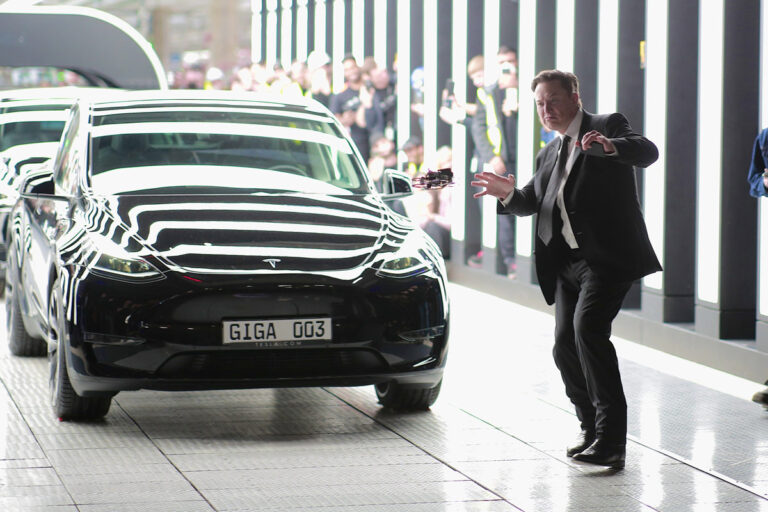Elon Musk is a ‘free speech absolutist’… except when it comes to silencing his own detractors
When Elon Musk shook the internet—with fear or excitement, who’s to say?—after he announced he might be interested in launching his own social media platform, Donald Trump-style, many of us knew more developments were bound to result from it. Less than three days after his viral tweet, we’re already faced with said developments.
A former Tesla employee, who was fired earlier in March after he posted a video that was critical of the company’s autopilot, has pointed out that Musk “is a free speech absolutist… unless it involves safety concerns.”
Meanwhile, it’s also been revealed that Musk was known to engage in “yelling matches” with the National Highway Traffic Safety Administration (NHTSA) while on calls about safety concerns surrounding Tesla’s autopilot feature.
But before we get into the details of the billionaire’s hypocritical and downright dangerous approach to what should be accepted as free speech and what shouldn’t, it’s important we highlight everything you need to know about why he might want to launch a new social network in the first place.
The trend of rich men with a polarising presence wanting to build their own social media platforms
After being banned from Twitter on 8 January 2021, Trump announced that he would roll out his very own social media platform called TRUTH Social to “give a voice to all.” Needless to say, as of today, the app is failing completely, with Trump himself not posting on it since its launch in February. Then, more recently—on Saturday 26 March 2022, to be exact—Elon Musk revealed on Twitter that he was giving “serious thought” to building a new social media platform.
Am giving serious thought to this
— Elon Musk (@elonmusk) March 27, 2022
Though the Tesla CEO and ‘serious tweeter’ did not share any specifics on what the hypothetical app would look like or how it would work, it was clear what had pushed him to make such statements. Only one day prior, Musk tweeted: “Given that Twitter serves as the de facto public town square, failing to adhere to free speech principles fundamentally undermines democracy. What should be done?”
Given that Twitter serves as the de facto public town square, failing to adhere to free speech principles fundamentally undermines democracy.
— Elon Musk (@elonmusk) March 26, 2022
What should be done? https://t.co/aPS9ycji37
In another tweet posted on that same day, the SpaceX owner went on to say that “free speech is essential to a functioning democracy” and questioned whether Twitter “rigorously adheres to this principle.” Long story short, he was upset that the US Securities and Exchange Commission (SEC) had subpoenaed him back in November after he asked his Twitter followers if he should sell 10 per cent of his Tesla stock—causing shares to fall.
Free speech is essential to a functioning democracy.
— Elon Musk (@elonmusk) March 25, 2022
Do you believe Twitter rigorously adheres to this principle?
In the cases of both Trump and Musk, their logic seems pretty obvious: by building their own social network, they get to create the content moderation rules they often fall foul of on Twitter or Facebook. The exact same idea led to platforms like Rumble, Parler, Thinkspot and Gettr to launch in an effort to tempt people away from Facebook, Instagram, Twitter and TikTok.
Yet, for some men who are said to have a great sense of business, little attention seems to be paid to the fact that the platforms mentioned just above have all crashed and burned miserably—and for good reason.
How do you build a free speech platform when you’re accused of silencing people yourself?
Former auto-safety officials at the NHTSA told The Washington Post that Musk screamed and threatened to sue when the agency told Tesla it was launching an investigation into the carmaker’s products in 2016. Since then, the NHTSA has launched dozens of investigations into Tesla crashes.
Multiple former safety officials at the agency told The Post that the regulator has done anything from flattering to threatening Tesla and Musk in order to get the manufacturer to comply with recalls.
Meanwhile, former Tesla employee John Bernal was fired earlier in March 2022 after he posted a video to his YouTube channel, AI Addict, that was critical of the company’s full self-driving (FSD) software.
Seems @elonmusk is a free speech absolutist… unless it involves safety concerns IMO 🤷🏼♂️ https://t.co/QWV5JFukOc
— Aiaddict (@Aiaddict1) March 25, 2022
In the video, Bernal demonstrated that Tesla’s beta FSD software had serious issues, including randomly disengaging while it was driving—forcing him to scramble in order to take back control of the vehicle. In a later update, the former Tesla employee said he “was fired from Tesla in February with my YouTube being cited as the reason why.”
As Business Insider first reported, Bernal is not the first nor the last person to be a victim of Musk’s views on what is considered ‘valuable’ free speech and what isn’t. “In one instance, Fast Company reported that Musk found the identity of a would-be anonymous blogger who posted a negative stock analysis of Tesla and contacted their employer, threatening to sue, according to the blogger,” wrote the publication.
“In another incident, a journalist who had been critical of the Tesla Model X launch event was called by Musk personally and had their order for a Model X cancelled,” Business Insider continued. Yet Musk has continued to deny allegations of rage-firing employees and instead likes to insist that he is “a free speech absolutist.”
All that considered, it’s also crucial for us to remind ourselves that as much as Musk likes to proclaim that he or his companies are working on exciting products, quite often, proposed innovations aren’t released on time, if ever. At a Tesla ‘Autonomy Day’ event in April 2019, Musk said the company would have 1 million autonomous ‘robotaxis’ on the road in 2020. These still don’t exist.






